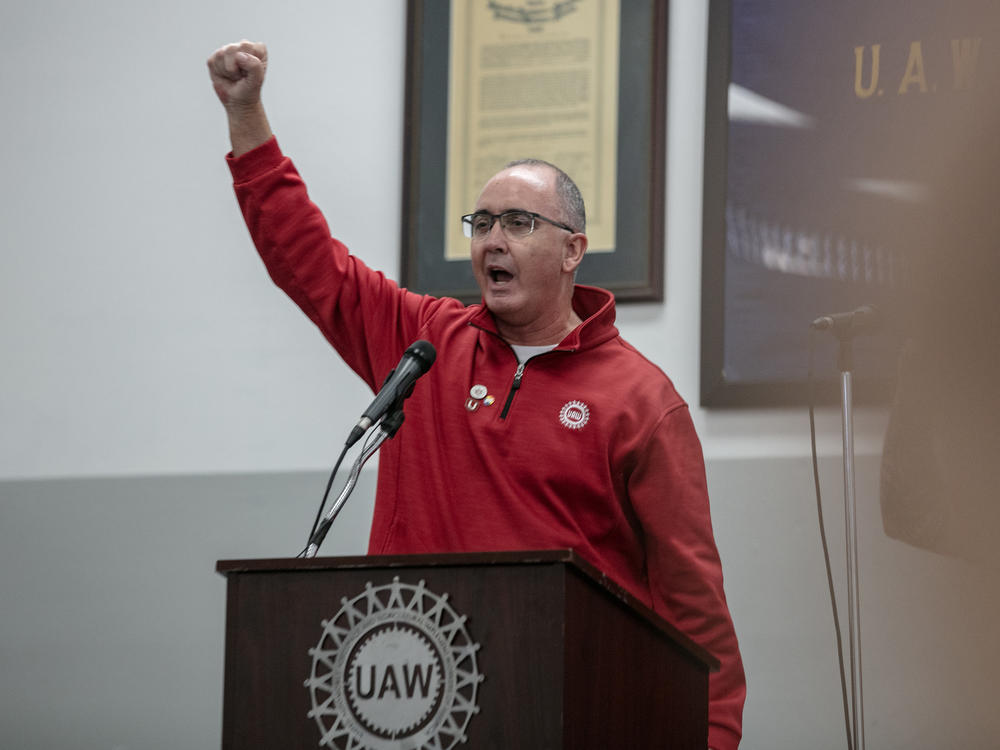Section Branding
Header Content
UAW announces new approach in its historic strike against the Big Three automakers
Primary Content
United Auto Workers President Shawn Fain said on Friday the union would not expand the strike immediately against the Big Three automakers, but left open the possibility that it could do so at any time.
Fain, in a Facebook Live appearance, called this a "new phase" in the union's fight against General Motors, Ford and Stellantis as the strike enters its fifth week.
Fain had previously used his Facebook Live presentations to announce strike plans, but the UAW changed tactics earlier this week when the union called on 8,700 workers at Ford's Kentucky Truck Plant to walk off the job after Ford declined to offer a better contract.
"We're not sticking to one pattern, or one system of giving these companies an extra hour or an extra day," said Fain said on Friday morning. "They know what needs to happen, and they know how to get it done."
No deal in sight yet
Fain's remarks come as the union and the Big Three automakers still appear at loggerheads over a new contract.
The UAW has made clear that the automakers' offers still fall short of the union's demands.
Ford, GM and Stellantis have all said they've already put record offers on the table that include wage increases of more than 20% over four years, the return of cost of living allowances, a faster progression to the top wage, additional paid holidays and more.
Other sticking points remain, including retirement security and whether there will be union jobs at electric vehicle battery plants.
Ford reacted angrily to the UAW's sudden decision this week to strike at its Louisville plant.
In a media call on Thursday, Ford said it had reached an economic ceiling on what it can offer, although the automaker said it was willing to adjust components of its offer.
"On the economics, I would say, yes, we're pretty much — we have reached our limit," said Kumar Galhotra, president of Ford Blue, the automaker's internal combustion and hybrid division.
"We have to set a very clear limit beyond which it starts to hurt our business and starts to hurt our future, and that is not good for anybody."
Copyright 2023 NPR. To see more, visit https://www.npr.org.

